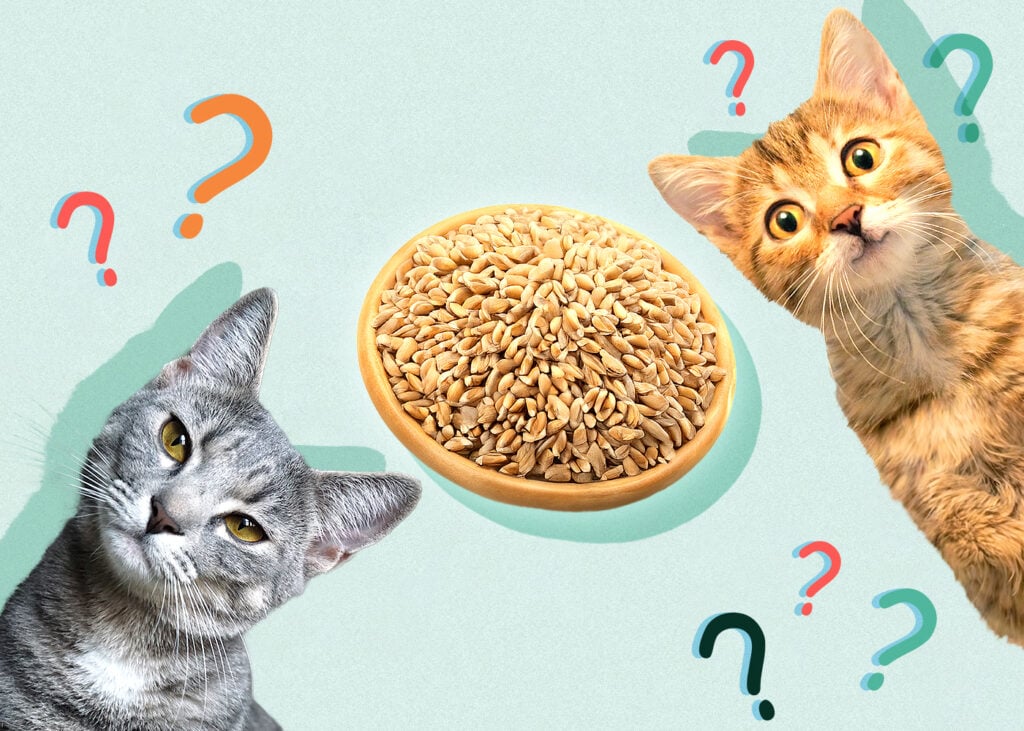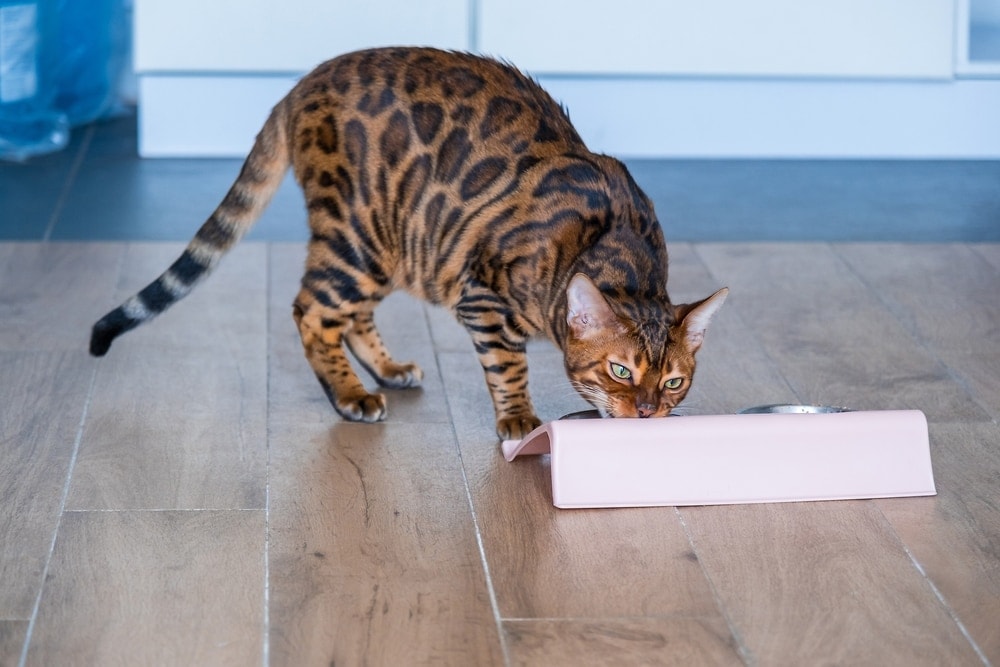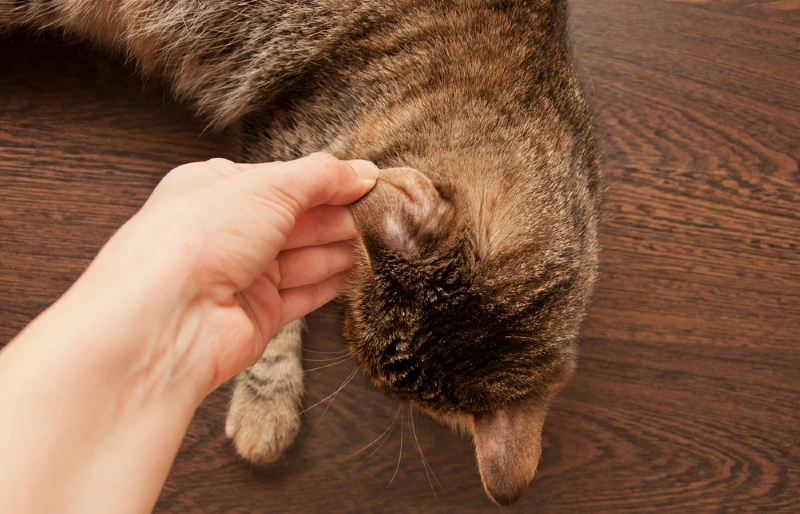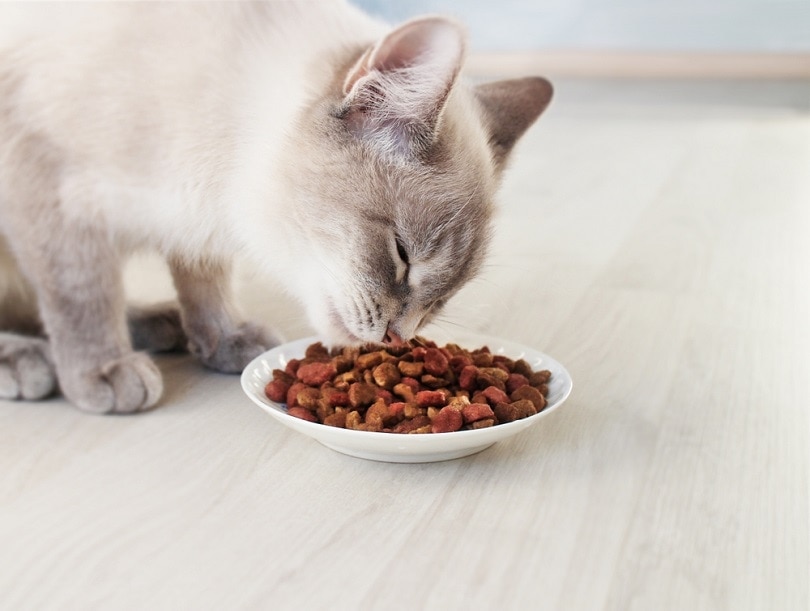Can Cats Eat Wheat? Vet-Reviewed Facts & Safety Guide
Updated on

Cats love to eat, but they are not designed to eat a wide variety of foods like humans or even dogs. As obligate carnivores, felines are designed to eat animal protein as their primary source of nutrition. However, cats can eat some foods that are not made up of animal protein. Some cats enjoy chewing on carrots at snack time, while others like being treated to small pieces of bananas after a meal.
So, you might wonder whether cats can and should eat wheat products. The short answer is yes, cats can eat some wheat. But when it comes to whether cats should eat wheat daily, the answer is a little more complicated. This article has everything you should know about whether feeding wheat products to your cat is beneficial overall.
Cats Can Eat Some Wheat Without Complications?
Wheat is not toxic to cats. While wheat is not necessary for a cat’s diet for good health, it does contain some vitamins and minerals that can help round out a cat’s overall diet. The fiber in wheat can also help keep your cat regular when it comes to their digestive health. However, too much wheat consumption can cause problems like indigestion and nausea.
If you feed your cat a commercial diet, you might find that some of the ingredients are wheat. Other grains found in cat food recipes are barley, corn, oats, and rice. However, these should not be the main ingredients in quality cat food.

When a Cat Has a Wheat Allergy
While rare, some cats have an allergic reaction to gluten, typically a major component of wheat products. A lot of the gluten can be washed out of flour before the flour is used for baking, but there will undoubtedly be gluten left in the dough no matter how much you wash it. Bread, crackers, many frozen foods, and even some types of chips have gluten in them.
- Constant scratching
- Consistent licking
- A dry coat and hair loss
- Gastrointestinal distress
- A loss of appetite
Most cats will not show any signs of wheat allergies. However, if you are feeding your cat commercial food that includes wheat or wheat products at snack time and notice any of the signs listed above, it is a good idea to schedule a check-up with your veterinarian. There are plenty of grain-free cat food recipes you can feed your cat instead.
Wheat Products That Are Ok for Cats
IMPORTANT: It is very important to note that if your cat has any underlying health issues, a medical diagnosis, or is on medication, then you should always consult with your veterinarian before offering any wheat products to them.
- Whole wheat bread
- Rye bread
- Whole wheat crackers
- Whole wheat pasta
- Pumpernickel
All whole wheat products that your cat consumes should be fully cooked. The uncooked wheat can cause serious problems and maybe even the need for an emergency visit to the veterinarian’s office. In addition, with all these products, ensure there is nothing extra on or inside them, such as sauces, condiments, raisins, chocolate, or dairy products.
Remember that feeding your cat food made with wheat should never be the main part of their diet. There are plenty of other treats and snacks made specifically for cats that are much healthier choices than bits of bread or pasta.

Wheat Products That Cats Should Never Eat
There are many wheat products that your cat should not ever eat because they are refined, enriched, or part of an unhealthy diet. For example, pretzels are not a good choice for cats because they are made with white flour, which contains no nutrients that a cat can benefit from. While cats can adjust to consuming the salt content of a pretzel without known risk of developing high blood pressure, the white flour used to make the pretzels offers no nutritional benefit to cats.
- White bread
- Ritz crackers
- Pizza crust
- Croutons
- Garlic bread
- Other baked goods like muffins, cookies, and cakes
Even if these products are made with whole wheat flour, the other ingredients in them are not ideal for a cat’s diet. Many wheat products, like crackers, have oils and seasonings that are not healthy for your cat to consume. Cookies, muffins, and cakes have added sugar, dairy, and oils. Many have artificial preservatives as well. None of those ingredients are beneficial for your feline. Due to all these added ingredients, most cat owners avoid giving wheat products to their pets entirely.
Now that you know what you can safely feed your cat, it’s just as important to find a bowl that supports their health and well-being. With whisker-friendly bowls and a wide tray to catch any spills, our Hepper NomNom Cat Bowl is our favorite option.
 In Conclusion
In Conclusion
Cats do not need any wheat products to live happy and healthy lives. They can get all the nutrients they need from animal proteins. However, a little whole wheat now and then won’t hurt them. Just make sure that the products you offer your cat are made only with whole wheat and are not packed with other ingredients. These offerings should be an occasional treat, never part of their balanced diet.
See also:
Featured Image Credit: Creatopic, Shutterstock















